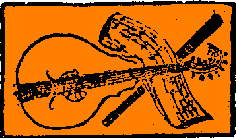Separate Index of all citations

Song and Poetry Index

Filling a major gap in access to 18th-century American sources for research in the performing arts, this project assembled and indexed all references to music, dance, theater, and poetry in American newspapers from the earliest extant copy (1690) through the end of the Revolutionary War (1783), including those in the French and German languages. It was conducted under the auspices of the Research Foundation of the State University of New York and funded by the National Endowment for the Humanities and SUNY-The College at New Paltz.
What's Included?
Nearly 60,000 newspaper issues, including supplements, extraordinaries, and postscripts, have been carefully read for all references, allusions, metaphors, song lyrics, woodcut illustrations, and all other ways in which the performing arts were brought to the attention of eighteenth-century Americans through the reading of newspapers.
Astonishing Variety
The variety and scope of information is astonishing. Pieces about stolen costumes, lost flutes, African-American fiddle-makers, Native-American dancers, and stories about local actors have been carefully copied into the computer data base. Advertisements have been collected for theatrical performances, lost choreographies, and violin parts; for piano makers, puppet shows, and all kinds of stock including music paper, reed cases, Welsh harps, scores, plays, and ballads. Woodcuts depicting instruments have been scanned into the database for on-screen viewing.
From Moscow to Tahiti
Reports came from everywhere: from Canada to Peru; from the Mississippi to the Volga; from Moscow to Tahiti. Descriptions of foreign music-making, stage shows, and dancing were eagerly read by colonial Americans. Their hunger for news of the latest plays, ceremonials surrounding important announcements and celebrations, and gossip about the dances and music at foreign courts and concert halls was matched by their interest in enjoying the same arts and latest compositions themselves.
Musicians for Hire
The data shows that musicians were available for hire in nearly every town, ready to play for official ceremonies, student theatricals, funerals, militia exercises, and church services. Carillons rang tunes and changes for all to hear. Singing and dancing were enjoyed by all levels of society. Churches rang with hymns, psalms, and anthems sung by congregations and choirs, many with organ or instrumental accompaniment.
On CD-ROM
Published in late 1997, the data base contains all texts and woodcuts relating to the performing arts, a general index of this data, and a supplementary index of first lines. A bibliography giving the nameplate title, publisher, and location of each issue and supplement read is linked to every citation. It is available on CD-ROM (for DOS and Windows 3.1/'95), packaged with a program enabling rapid and systematic access to the data (OmniSearch) (tm), plus an on-line User's Guide. A list of Sample Topics, with hyperlinks is also provided.
54,411 full-text citations, (99 MB)
235,676 index records, words (50 MB)
50,719 bibliographic records (40 MB)
12,061 lyrics (5 MB)
37 unique woodcuts
Go to: Sample Topics
Project Director: Dr. Mary Jane Corry
Director of Technology and Indexer: Kate Van Winkle Keller
Computer Consultant: Robert M. Keller
Go to University Music Editions Home Page
© 1997 University Music Editions
© 1997 Knowledge Access International